Merton of the Movies

Brief Synopsis
Cast & Crew
Robert Alton
Red Skelton
Virginia O'brien
Gloria Grahame
Leon Ames
Alan Mowbray
Film Details
Technical Specs

Synopsis
In 1915, in the small town of Tickerton, Kansas, Merton Gill, a naïve usher at Mr. Gashwiler's theater, is fired from his job for spending too much time watching movies and daydreaming of a future as a screen idol. In the theater office, Merton foils an attempted safe robbery by using crime-fighting techniques he learned from watching the films of his favorite movie star, Lawrence Rupert. Merton is hailed as a hero, and when Rupert's publicists read about him in the newspapers, they decide to bring him to Hollywood and use his fame to help revive Rupert's waning career. Immediately upon his arrival in Hollywood, Merton is taken to Rupert and dressed up for publicity photographs with the star. Merton is in awe of his favorite star, but Rupert ignores him, and, after the session, Rupert's men advise him to return home. Determined to become a star, Merton stays in Hollywood, adopts the screen name "Clifford Armitage," and begins looking for work. Following many failed attempts to break into film, Merton accepts a job as an attendant at the Goodfellows men's club. During his free time, Merton looks for work as an extra at the Mammoth Studio, and here befriends stunt double Phyllis Montague. Merton is eventually fired from his job at the Goodfellows club when he accidentally drops a bag of light bulbs and disturbs the quiet in the "Over 70" room. Phyllis helps Merton find his way to the set of Jeff Baird's comedy film, and Merton befriends leading actress Beulah Baxter. Merton then gets an assignment as an extra on director Von Strutt's film, but is soon fired for overacting. Rupert, meanwhile, has disappeared on another one of his drinking binges, and while studio officials search for him, Phyllis succeeds in getting his part changed to a comedy role and replacing him with Merton. Phyllis, who has fallen in love with Merton, knows that he does not wish to play comic roles, so she deliberately conceals the truth about the part from him. When Rupert's thuggish publicists learn that Merton played Rupert's part as burlesque, they threaten him with harm if the movie disgraces their client. Merton believes that he played a straight dramatic role, but at a screening of the completed film, he is shocked to discover that his performance has been edited to make him appear funny. Merton is offended by audience's laughter and becomes disillusioned by Hollywood until Phyllis convinces him that his true talent lies in comedy.

Director

Robert Alton
Cast

Red Skelton

Virginia O'brien

Gloria Grahame
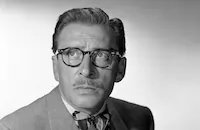
Leon Ames
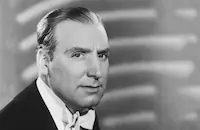
Alan Mowbray
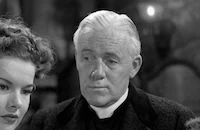
Charles D. Brown

Hugo Haas
Harry Hayden
Tom Trout

Douglas Fowley
Dick Wessell
Tom Dugan
Oliver Blake
Tim Ryan
Phil Arnold
Bert Hanlon
Donald Kerr
Gloria Gunther
Duke Green
Ben Moselle
Drew Demarest
Fred Santley
Bill Conselman
Charles Wagenheim
George Magrill
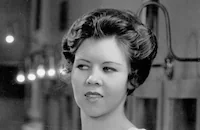
Mary Treen
Steve Olsen
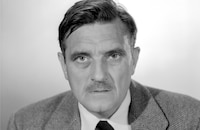
Morris Ankrum
Eddie Dunn
Frank Darien
Elmer Jerome
George Bunny
Tom Leffingwell
Pete Sosso
Wyndham Standing
Paul Scardon
Larry Wheat
Tom Murray
Frank Eldredge
Frank Marlowe
Robert E. O'connor
Hal K. Dawson
Almira Sessions

James Davis
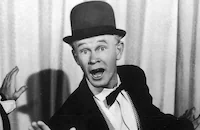
Billy Benedict
Walter Merrill
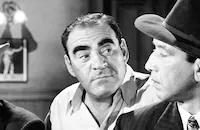
Ralph Dunn
Celia Travers
Frank Pharr
Eloise Hardt
Gordon Richards
Vesey O'davoren
Constance Purdy
Charles Bates
Polly Bailey
Antonio D'amore
Robert Milasch

Billy Curtis
Jack Sterling
King Mojave
Vernon Dent
Clarence Hennecke
Heinie Conklin

Chester Conklin
Helen Dickson
John Phipps
Crew
Bob Barnes
Lou Breslow
Howard Campbell
Jack Dawn
Cedric Gibbons
Sydney Guilaroff
George Haight
Joseph W. Holland
Frank E. Hull
Irene
Albert Lewis
Al Raboch
Helen Rose
Douglas Shearer
David Snell
Valles
Paul C. Vogel
George Wells
Edwin B. Willis

Film Details
Technical Specs

Articles
Merton of the Movies
In the 1947 MGM version, set in 1915, Red Skelton plays Merton, Virginia O'Brien plays Phyllis, the romantic interest and Hollywood veteran who shows Merton the ropes, and Gloria Grahame is a comic standout as the silent screen vamp, Beulah Baxter. Merton wins a phony contest to go to Hollywood, and is convinced he can become a great dramatic and romantic leading man. But his acting is so bad it's comical... and being funny makes him a star in spite of himself. Merton of the Movies is an affectionate and amusing look at silent movie making, with several silent movie actors, including Chester Conklin, Vernon Dent, Franklyn Farnum, and May McAvoy playing bit parts in the film.
Skelton, a vaudeville and radio performer, had been signed to an MGM contract in 1940, after MGM star Mickey Rooney saw his act and offered to put in a good word for him at the studio. At first, Skelton was used mostly as comic relief in "B" movies and two Doctor Kildare films. Then in 1941, he had his first starring role in a "B" picture, Whistling in the Dark, playing a radio detective who becomes involved in a real-life mystery. The film was so successful that it led to two sequels, Whistling in Dixie (1942) and Whistling in Brooklyn (1943). When Skelton returned to work after service in World War II, the studio took his career in a different direction, casting him in leads in adaptations of two stage hits, The Show-Off (1946) and Merton of the Movies. Neither film fully showcased his comedic strengths, and it was not until he began working with silent film legend Buster Keaton, who coached him in his routines, that he gave some of his most hilarious performances in films such as A Southern Yankee (1948).
Virginia O'Brien, known for her deadpan way with a song, had played opposite Skelton several times, most recently in The Show-Off. Her performance in Merton of the Movies was a rare non-singing role for O'Brien, and she showed a deft touch with witty dialogue. But her appealing performance was overshadowed by Gloria Grahame's flashier role, and MGM did not renew O'Brien's contract. Merton of the Movies was her final MGM film.
According to Grahame biographer Vincent Curcio, Merton of the Movies was "one of the few times she was able to fully display her comic gifts onscreen." A Los Angeles native, Grahame began her career onstage right out of high school. She began getting attention when she appeared in several unsuccessful Broadway shows, and a Hollywood talent scout spotted her. Signed to an MGM contract in 1944, she had spent two frustrating years at the studio with only bit parts to her credit with the exception of Blonde Fever (1944), a showcase role. Then director Frank Capra, casting his independent production It's a Wonderful Life (1946) saw her screen test, and immediately chose her for the juicy role of the town flirt who could have become the town tramp without the intercession of hero George Bailey (James Stewart). MGM finally paid attention to Grahame, and immediately cast her in two 1947 films, It Happened in Brooklyn opposite singing sensation Frank Sinatra, and Merton of the Movies. In the latter, according to Curcio, "Her manner is delicious, her timing perfect, and her look a perfect combination of vamp and valentine, down to the last pincurl and satin ribbon. To play off the genius of Skelton, you can be sexy, but you can't be too wise, and Gloria managed to be the ideal foil."
Skelton left MGM in 1952, and went on to become a huge television star. MGM sold Grahame's contract to RKO the same year Merton of the Movies was released, and her first film there, Crossfire (1947) made her a star. It also earned her an Oscar® nomination, and she eventually won a supporting actress Academy Award for her performance as an unfaithful wife in The Bad and the Beautiful (1952), ironically made on loanout back at MGM.
Merton of the Movies also seemed to have staying power. The play was still being revived on Broadway in the 1970s, and in Los Angeles as recently as 1999, proving that the dream of Hollywood stardom never loses its appeal.
Director: Robert Alton
Producer: Albert Lewis
Screenplay: George Wells, Lou Breslow, based on the play by George S. Kaufman and Marc Connelly and the novel by Harry Leon Wilson
Cinematography: Paul C. Vogel
Editor: Frank E. Hull
Costume Design: Irene, Helen Rose, Valles
Art Direction: Cedric Gibbons, Howard Campbell
Music: David Snell
Principal Cast: Red Skelton (Merton Gill), Virginia O'Brien (Phyllis Montague), Gloria Grahame (Beulah Baxter), Leon Ames (Lawrence Rupert), Alan Mowbray (Frank Mulvaney), Charles D. Brown (Jeff Baird), Hugo Haas (Von Strutt), Harry Hayden (Mr. Gashwiler).
BW-83m. Closed Captioning.
by Margarita Landazuri

Merton of the Movies
Quotes
Trivia
Notes
In May 1944, Hollywood Reporter reported that after purchasing the rights to Merton of the Movies from Paramount for $60,000, M-G-M slated the picture for a 1945 release with either Robert Walker or Frank Sinatra in the title role. An April 1946 Hollywood Reporter news item noted that Buster Keaton was set to play himself in the picture, but he did not appear in the final film. According to a February 1947 New York Times article, Merton of the Movies was one of three M-G-M films, along with Tenth Avenue Angel and Desire Me, whose release was delayed so that significant portions of the story could be rewritten and reshot. In October 1946, revisions were ordered by M-G-M executives as part of a policy designed to protect actors appearing in their films by bringing all their pictures up to studio standards.
Retakes and additional filming began in mid-February 1947. Some actors were either replaced or had their parts eliminated in the second round of filming. An M-G-M studio cast list dated October 1946 indicates that actor John Emery was replaced by Leon Ames, and that Harry Hayden replaced Charles Halton. Other actors listed in the original cast, but who did not appear in the final film include Connie Gilchrist, Louis Mason William Tannen, Esther Howard, William Bishop and Anne O'Neal. Actors whose appearances in the released version of the film cannot be verified include: Ben Lessey, May McAvoy, Sam Ash, William Frambes, Bobby Johnson, Britt Wood, Helyn Eby-Rock, Louise Franklin, Buddy Beattie, Helen Boice, Joan Blair, Budd Fine, George Carlton, Eddie Waller, Carl Saxe, Phil Dunham, Frank O'Connor, Bert Davidson, Rex Ravelle, Mike Pat Donovan, Kenner Kemp, Cedric Stevens, Tom Pilkington and Roger Cole.
The film's "Keystone Kops" sequence featured several actors who had originally played "Kops" in the 1910s, including, Vernon Dent, Clarence Hennecke, Heinie Conklin and Chester Conklin. The 1922 stage production of Merton of the Movies starred Glenn Hunter and Edward M. Favor. Hunter reprised his role for a 1924 Famous Players-Lasky motion picture version of Merton of the Movies, which was produced and directed by James Cruze (see AFI Catalog of Feature Films, 1921-30; F2.3570). Paramount remade the film in 1932 as Make Me a Star, directed by William Beaudine and starring Joan Blondell and Stuart Erwin (see AFI Catalog of Feature Films, 1931-40; F3.2665). Mickey Rooney and Judy Garland starred in the Lux Radio Theatre version of the story, which aired on November 17, 1941.















